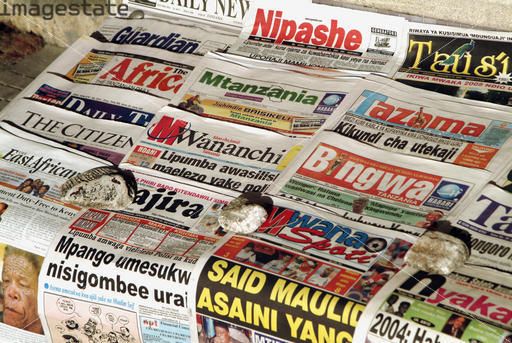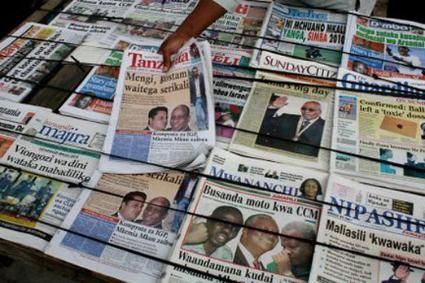Tanzania newspaper returns after three-year ban
Mwanahalisi returns to print just a month before general elections
A Tanzanian newspaper closed by the government published its first edition for three years on 22 September after a court lifted the ban.
The Swahili-language independent weekly newspaper Mwanahalisi was ordered to close in July 2012 but the ban was overturned after a recent appeal at the high court in Dar es Salaam. MwanaHalisi had been suspended "indefinitely" over a series of articles accusing the government of involvement in a brutal attack against a leader of doctors' strikes in the country.
The newspaper named an official from the president's office, claiming he was a secret service agent involved in the attack. The information ministry reacted by using the country's notorious 1976 Newspaper Act, which allows the minister to suspend publications indefinitely, without being required to justify the decision, to close the newspaper.
In January this year the Tanzanian government shut down a major regional newspaper, The East African, after 20 years in circulation, accusing it of a "negative agenda" against Tanzania. The government reportedly objected to a cartoon published by the newspaper portraying president Jakaya Kikwete lying on a sofa being fed grapes from scantily-clad women labelled "cronyism, incompetence and corruption". The East African remains closed, its website's home page leading with the story of its own ban, dated 24 January 2015.
Almost two years ago, in October 2013, Tanzania suspended two leading Swahili-language daily newspapers on charges of sedition. The respected, privately-owned Mwananchi was suspended for 14 days and MTanzania for 90 days. Both newspapers were charged with publishing "hostile articles aimed at inciting the people to lose confidence in state institutions and thus endanger peace and national unity."
Tanzania is ranked 69th out of 180 countries on the Reporters Sans Frontières (RSF) current press freedom index for 2015.
The return of MwanaHalisi to print comes as campaigning begins in earnest for the country's general elections on 25 October.


















